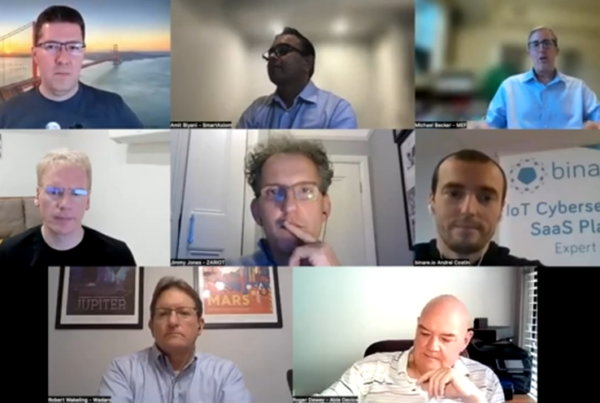The battle for your kitchen is hotting up. CES was packed with smart speakers – without doubt the tech industry’s most dynamic sector. Here’s a round-up of the big new launches…
If you were to ask your Amazon Echo: “Hey Alexa, what is the world’s most exciting new consumer technology segment?”, it might well answer, “Er. Me.”
And so it should. Amazon has enjoyed huge success with its smart home assistant. It confirmed the Echo (and its little sister product, Dot) were its best sellers in 2016.
What makes this remarkable is that hardly anyone saw this coming. When Amazon first unveiled Echo in late 2014, most pundits were confused. A voice-controlled cylindrical speaker for the kitchen?
Huh? What’s wrong with a smartphone?
Well, it turned out that the kitchen may well be the one place where people are not tethered to their iPhones and Galaxys.

And so Amazon created the first significant comms device in a decade that doesn’t rely on the phone in some way. Now, analysts are predicting huge things for the market. Juniper Research says revenue from smart audio hardware will more than triple to $5.5 billion by 2020.
Inevitably, Microsoft (with Cortana) and Google (with Assistant) have now debuted their own voice-AI platforms. Google also launched hardware (Home) to compete directly with Echo, while Microsoft set about licensing Cortana to OEMs. Amazon has also extended Alexa to third parties.
And so we came to CES, and smart assistants were everywhere. Here is a round-up of the main devices/announcements…
Amazon Echo
The one that started it off. Amazon hasn’t said how many it has sold (though analysts say five million in two years). However, the e-tailer did say its Echo and Dot devices were its best-sellers over the holidays, with Echo family sales up over 9x compared to 2015.
Google Home
Google unveiled its answer to the Echo in 2016. The product costs $129 and is powered by the same Google Assistant that powers Pixel phones. Most pundits agree that Assistant is more powerful than Alexa when it comes to general queries.
That said, Alexa is arguably more compatible with smart home and – of course – links seamlessly to Amazon’s retail inventory.
LG Hub Robot
 Kind of an Echo competitor and kind of not. The LG Hub Robot is powered by Alexa, but it does a lot of smart home things that LG says the Echo cannot. “It can pre-heat your oven, initiate your robot vacuum cleaner when you leave the house, turn on the air conditioner or change a dryer cycle.”
Kind of an Echo competitor and kind of not. The LG Hub Robot is powered by Alexa, but it does a lot of smart home things that LG says the Echo cannot. “It can pre-heat your oven, initiate your robot vacuum cleaner when you leave the house, turn on the air conditioner or change a dryer cycle.”
Needless to say, you need connected LG appliances to do all this. LG’s robot is still a prototype, so there’s no launch date scheduled.
Harman Kardon Cortana speaker
InDecember, Microsoft announced the Cortana Skills Kit to help developers reach Cortana users via Windows, Android, iOS and Xbox. It also released a Cortana Devices SDK to allow OEMs to make Cortana-powered products.
It confirmed Harman Kardon as the first partner. There were no more details, but there was a YouTube teaser for a speaker coming in 2017.
 Lenovo Smart Assistant
Lenovo Smart Assistant
The first name manufacturer to build an Echo lookalike is Lenovo. Its Smart Assistant is based n Alexa and does everything the Echo does. Where it differs is in set up (it is connected via a Lenovo app, which is built on top of Amazon’s interface).
It’s also a little cheaper (against $180 for Echo). Will be available from May 2017.
Omaker WoW
Tech company Linkplay claims to be the first third-party-seller to make an Alexa-powered tower. It powered the integration for the Omaker WoW speaker, which will be available later this month.
HP Pavilion Wave
 Why shouldn’t a PC tower also be a smart speaker? It’s a reasonable question to ask, and given the slow decline in desktop PC sales (at the expense of laptops, tablets, smartphones), OEMs are looking for any new idea that could boost the sector.
Why shouldn’t a PC tower also be a smart speaker? It’s a reasonable question to ask, and given the slow decline in desktop PC sales (at the expense of laptops, tablets, smartphones), OEMs are looking for any new idea that could boost the sector.
HP announced its Pavilion Wave in 2016. The product looks like a smart smarter, with its tower design and fabric cover, though it is a fully functioning desktop PC.
But it also plays sound to a high quality (it comes with Bang and Olufsen technology built-in) and functions as a listening smart assistant. As a Windows 10 system, the Pavilion Wave comprises the Windows Cortana digital assistant. Users can ask a question and get the answer via the speaker.
Mattel Aristotle
 Whenever there’s a new tech trend, it’s not long before someone makes a version especially for kids. Step forward, then, the Mattel Aristotle.
Whenever there’s a new tech trend, it’s not long before someone makes a version especially for kids. Step forward, then, the Mattel Aristotle.
The toy giant debuted Aristotle at CES 2017 in partnership with Qualcomm, Microsoft Cortana and childrens’ tablet maker Nabi. In actual fact, the device is pitched as much at parents as kids. Aristotle can recognise when babies wake up, and play them a lullaby for example. New parents can also order kit from Target, Babies R Us and other participating retailers.
But Aristotle can also be trained to understand younger children. They can play games with it, and hear stories etc. As with Echo, users have to interact with the device by name. They must preface requests with ‘hey Aristotle’. Interestingly, Aristotle can be set to only respond to commands that also include ‘please’.
Ford/Hyundai
Motor manufacturers have tried for years to master in-car interactivity. They’ve created their own proprietary systems (Ford Sync etc) only to see many drivers prefer to use their smartphones at the wheel (in itself, an inelegant solution to the problem).
Maybe the emergence of smart third party voice assistants like Alexa hints at a solution. At CES, Ford confirmed it will use Amazon’s Alexa inside its cars. Drivers will be able to find destinations, control smart home devices, order items and more.
And it will work the other way too, so users with Alexa in the home will be able to retrieve information about a connected Ford car, such as its current fuel level.
Ford is not alone. Hyundai also announced it would integrate its cars with Alexa (though with fewer functions). Meanwhile, Microsoft has unveiled its Connected Vehicle Platform powered by Cortana and confirmed the Renault-Nissan Alliance and BMW as partners.
C by GE LED Lamp
 In 2015, Amazon announced it would let OEMs embed Alexa in their devices. An obvious move. Amazon clearly wants as many products/people accessing its systems (and possibly ordering its inventory) as possible.
In 2015, Amazon announced it would let OEMs embed Alexa in their devices. An obvious move. Amazon clearly wants as many products/people accessing its systems (and possibly ordering its inventory) as possible.
The strategy will inevitably lead to an explosion of Echo lookalikes (see Omaker WoW, LG Hub etc). However, other manufacturers are using Alexa to enhance more ‘single purpose’ devices. One of the first is the smart lamp made by C by GE.
This rather stylish LED ring contains an internet connection and microphone. It will do pretty much everything an Echo will do.





One Comment